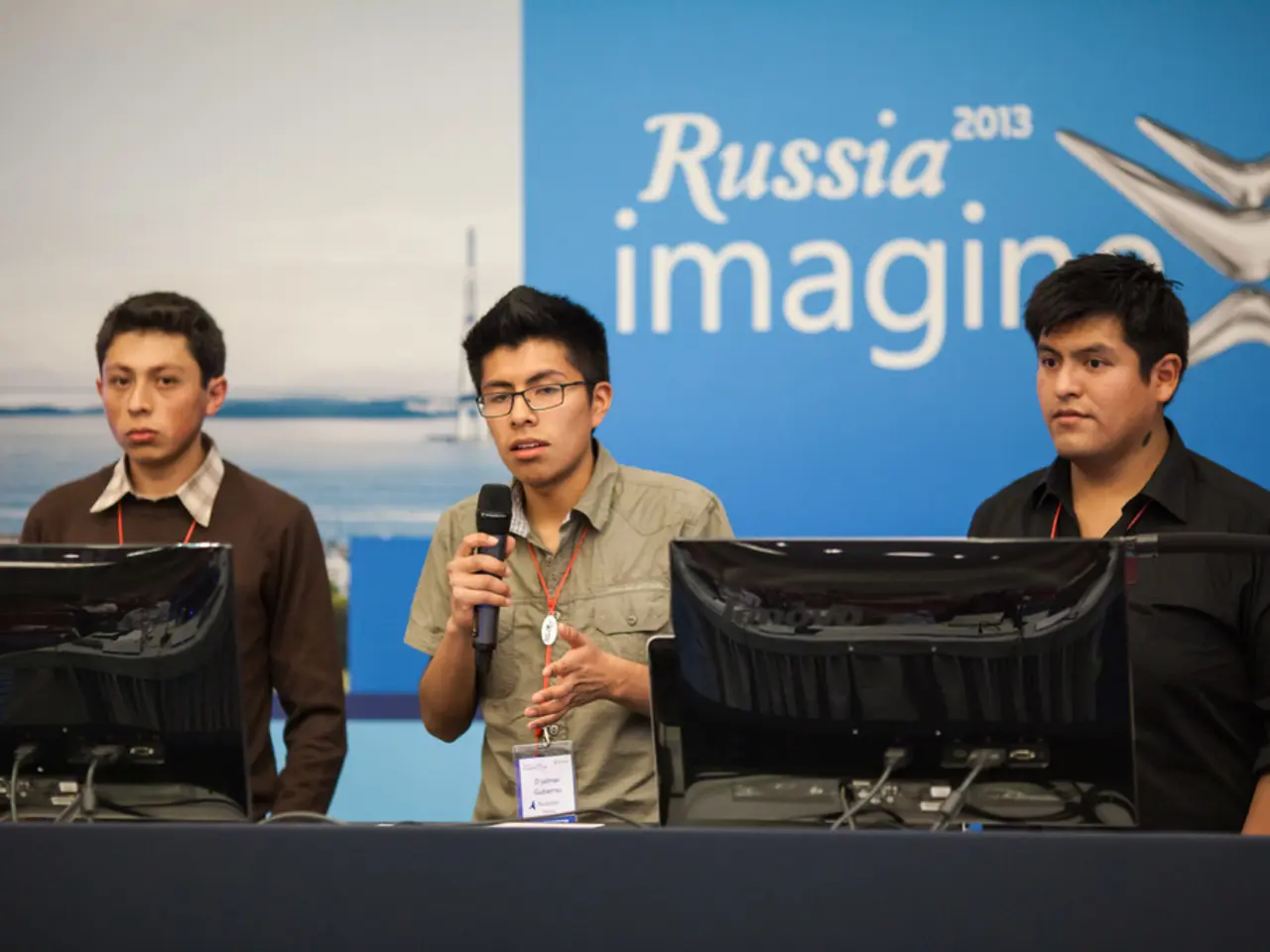Russia Expands Territorial Claims Confronted by Ukraine in Trump-Putin Meeting
In an anticipated meeting, President Trump is set to meet with Russian President Putin in Alaska on Friday, marking the first U.S.-Russia summit since 2021. However, the upcoming encounter has sparked concerns among Ukraine and its European allies, who fear a potential peace deal may sideline Ukraine's interests.
Ukraine's military has been engaged in difficult combat against Russian soldiers, with the advance near the coal-mining town of Dobropillia being a part of Putin's campaign to take full control of Ukraine's Donetsk region. Amidst these challenges, Ukraine's President, Zelenskyy, has received support from European leaders for his determination.
The Ukrainian president insists on being the primary decision-maker about any territorial changes and opposes ceding sovereign land to Russia, as its constitution forbids such concessions. European leaders have echoed this stance, emphasizing that such matters must be resolved by Ukraine itself.
Ukraine and its allies are particularly worried about the possibility of a peace deal involving "some swapping of territories" beneficial to both Russia and Ukraine. They fear that Trump may reward Putin for his efforts to seize Ukrainian territory, especially in open warfare, as a means to claim peace and seal new business deals with Russia's government.
Russian soldiers have advanced deeper into eastern Ukraine before the summit, raising tensions even further. Zelenskyy has made it clear that a ceasefire must be agreed upon before any discussions about territorial issues can take place.
Trump, on the other hand, has suggested that a peace deal could involve territorial swaps beneficial to both Russia and Ukraine. However, his administration has downplayed expectations for the meeting, calling it a "listening exercise."
In response to these developments, European leaders, including Zelenskyy, have reiterated that a lasting peace cannot be secured without Ukraine at the negotiating table. Polish Prime Minister Donald Tusk has stated emphatically that Ukraine cannot lose the war and no one has the right to pressure Ukraine into making territorial or other concessions.
Amidst these geopolitical maneuvers, Ukraine's military has managed to retake two villages in the eastern region of Sumy, marking a small reversal in over a year of Russian gains in the southeast. This modest victory serves as a reminder of Ukraine's resilience and determination to safeguard its sovereignty and territorial integrity.
Meanwhile, Ukrainian forces continue to face a shortage of soldiers due to Russia's invasion three years ago. In an effort to support Ukraine, European leaders have pledged to contribute further to help Ukraine strengthen its military capabilities and ensure peace and security on the continent.
However, Hungarian Prime Minister Viktor Orban, Putin's principal ally in Europe, has mocked his counterparts as "sidelined" and claimed that Russia has already defeated Ukraine. This divisive rhetoric underscores the complex and contentious nature of the ongoing conflict.
As the world watches the unfolding events, the stakes are high for Ukraine, Russia, and the international community. The outcome of the Trump-Putin summit could have significant implications for the future of Ukraine and the wider region.








